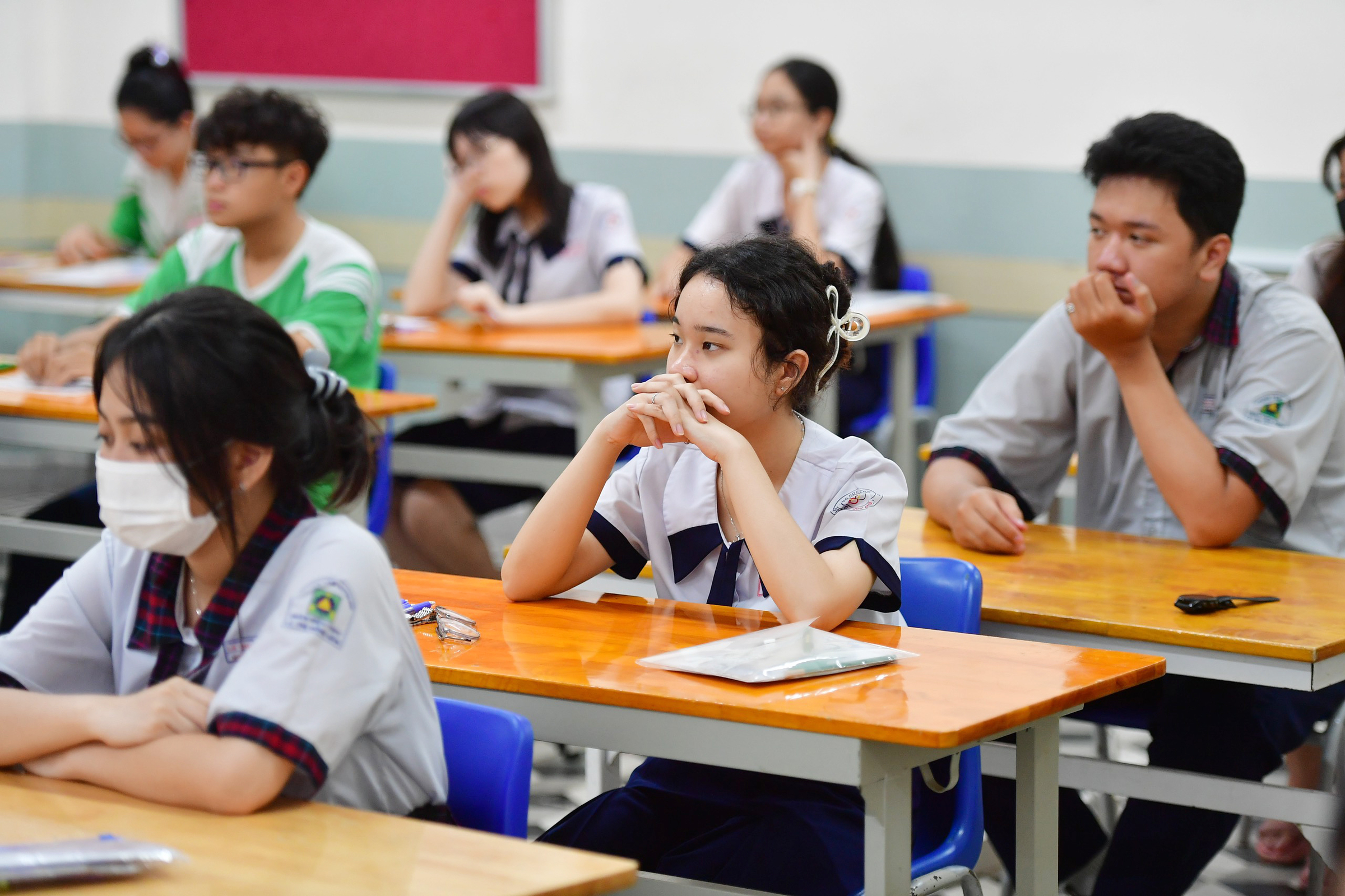As the high school graduation exam approaches, many students face stress and anxiety about this crucial test. Parents and students alike are concerned about maintaining good health for effective studying and optimal exam performance.
The Ho Chi Minh City Center for Disease Control (HCDC) shares some ways to boost nutrition and maintain both physical and mental well-being during this demanding exam period.
Maintaining a healthy diet
During exam season, students' energy needs increase significantly compared to adults, as they require energy for both physical and mental development. According to experts, male students need around 2,500 calories per day, while female students need 2,000-2,300. Notably, the brain consumes about 400 calories daily, accounting for one-fifth of the body's total energy intake.
To ensure good health and concentration, students should eat nutritious meals, avoid skipping meals, and avoid overeating (aim for about 80% full) to prevent blood from rushing to the stomach, causing drowsiness and reduced learning efficiency. In addition to three main meals, 2-3 snacks are recommended. Breakfast is especially important, providing about 30% of the day's energy. Skipping breakfast can lower blood glucose levels, leading to fatigue and poor concentration.
A diverse diet, including about 20 different food items daily, is essential to ensure adequate intake of protein, carbohydrates, fats, vitamins, and minerals. Foods that support brain function and reduce stress include: foods rich in vitamin B12 (beef, chicken, eggs, whole grains), omega-3 (salmon, tuna, mackerel, chia seeds, olive oil), magnesium (avocado, bananas, broccoli, pumpkin seeds), protein (eggs, lean beef, beans), and fermented foods (yogurt).
Students should limit stimulants like tea, coffee, energy drinks, spicy foods, or foods high in saturated fat to maintain optimal physical and mental states during exam season.
Maintaining a regular sleep schedule
For brain recovery and enhanced learning, students should adhere to their natural sleep-wake cycle and ensure 6-8 hours of sleep per day.
According to experts, a reasonable schedule includes studying from 7 p.m., going to bed before 11 p.m., and waking up early at 5 a.m. for review, when the brain is most active.
Additionally, a 30-minute to 1-hour nap is essential to replenish energy and maintain focus during the exam period.
 |
Candidates at Le Quy Don High School, District 3, Ho Chi Minh City, in 2024. Photo: Thanh Tung |
Increasing physical activity
Outdoor physical activities improve blood circulation, delivering oxygen and nutrients to the brain while reducing stress for students during exam season.
To optimize learning efficiency, students can use the Pomodoro Technique:
- Choose a task.
- Set a timer, typically 25 minutes for one Pomodoro.
- Work on the task until the timer rings.
- Take a 5-minute break with light exercise like walking, shoulder rotations, hand exercises, looking at distant objects to relax the eyes, and deep breathing to increase blood flow to the brain.
- After 4 Pomodoros, take a longer break of 10 to 30 minutes, depending on your energy levels and workload.
This technique not only helps relax the brain but also improves learning efficiency, supporting students through exam season effectively.
Preparing mentally
To help students manage exam pressure, achieve good results, and minimize psychological distress, parents should accurately assess their children's abilities, offering encouragement and support for a relaxed and confident mindset. Experts advise parents against pressuring students for high achievements or scolding them, as this can easily lead to stress or psychological disorders, especially for those with sensitive minds.
For students, sharing anxieties with family and friends, and accepting their support, can help relieve pressure and build confidence.
Families also play a vital role in monitoring unusual behaviors like excessive or insufficient sleep, irritability, neglecting personal hygiene, and irregular eating habits. If any unusual signs are detected, parents should seek psychological counseling or treatment for their children promptly to ensure mental well-being during exam season.
My Y












